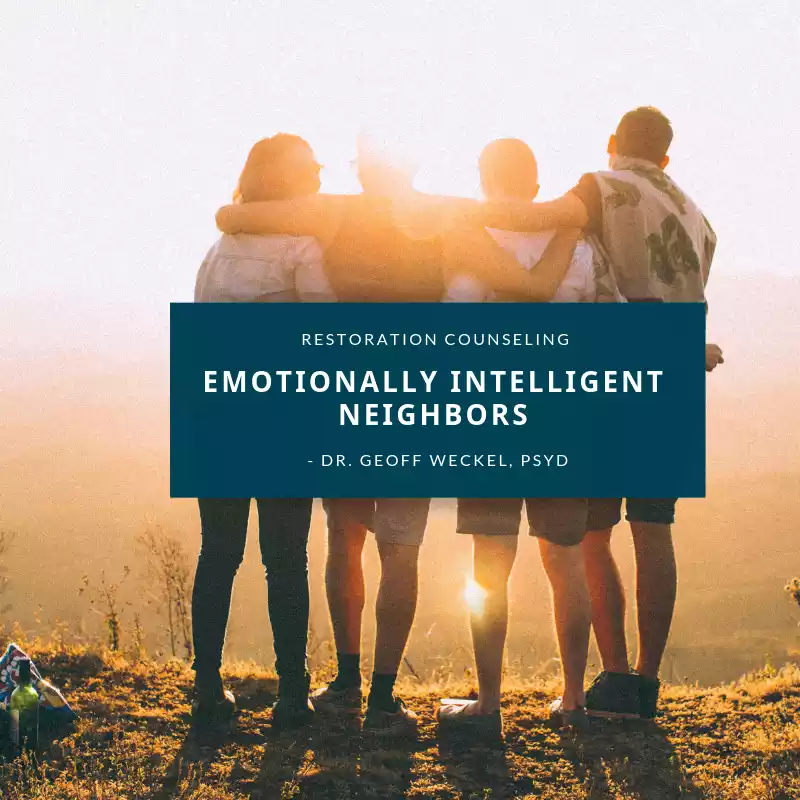
Emotionally Intelligent Neighbors
For over three decades Mr. Rogers taught Americans how to be good neighbors. Decades before Daniel Goleman wrote “Emotional Intelligence”, Mr. Rogers was teaching viewers about being an emotionally intelligent neighbor. I must admit, as a child, I did not fully appreciate Mister Rogers’ Neighborhood, but as I now reflect on his work, I can’t help but admire his legacy.
One of my favorite quotes from Mr. Rogers is, “Anything that’s human is mentionable, and anything that is mentionable can be more manageable. When we talk about our feelings, they become less overwhelming, less upsetting and less scary. The people we trust with that important talk can help us know that we’re not alone.”
I believe Mr. Rogers is spot on with the above statement. Feelings are an unavoidable aspect of life; they naturally occur as we go through our daily activities. Even if you try to ignore them, drink them away, or even chase after them, feelings cannot be controlled. Feelings are instinctual.
As a culture, we tend to associate positive experiences to events that make us feel happy or peaceful. On the other hand, we tend to link negative experiences to events that make us feel sad or afraid. In the above statement, Mr. Rogers implied that positive and negative feelings are equally in need of mention.
Recent neuroscience is discovering why mentionable feelings are manageable. Dr. D’Amasio, professor of neuroscience at The University of California said, “Feelings are mental experiences of body states, which arise as the brain interprets emotions.” In other words, our feelings originate from our body’s instinctual emotional states and are influenced by our personal thoughts and memories. According to Dialectical Behavior Theory, emotions are our body’s instinctual expressions that serve to: 1) provide us information about our environment, 2) physically communicate to other people what we are experiencing, and 3) prepare us to respond to our environment. These instinctual emotions appear to be universal in nature (Ekman). That means people from around the world express emotions similarly to you and I. Thus, emotions are universal responses that provide us the ability to instinctually express what we are experiencing.
Emotionally intelligent people are aware of their body’s emotional states. Their awareness affords them the ability to manage their emotions and respond to their feelings. They are not emotionally reactive, but they are able to effectively communicate what they are feeling. As a result, couples are able to effectively talk about their fears, parents are able to calmly discipline their children when they are angry, friends are able to share their enjoyment, and children are able to appropriately express their frustration. When neighbors share their experiences with one another positive feelings become more satisfying and negative feelings become less difficult.
As Mr. Rogers indicated, feelings are mentionable because they allow neighbors to connect with each other during life’s ups and downs. Let’s consider how we can increase our emotional intelligence with our neighbors by: 1) being mindful of our emotional states, 2) appropriately manage our feelings, and 3) intentionally accept things that are beyond our control.
“A joy shared is a double joy. A burden shared is half a burden.” Swedish Proverb


